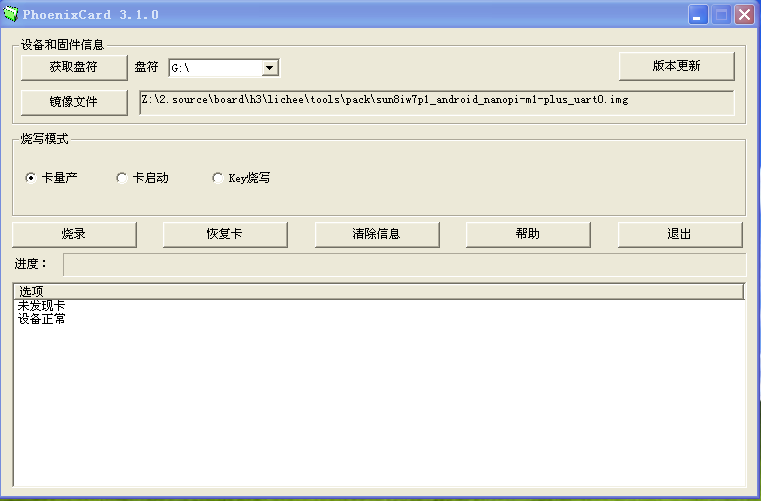Difference between revisions of "Template:BurnAndroidToEMMC-Allwinner"
From FriendlyELEC WiKi
(updated by API) |
(updated by API) |
||
| Line 7: | Line 7: | ||
<!-- | <!-- | ||
| − | + | 只适配了H3,H5经测试功能也是正常的,但是文档并没有适配,为了减少维护工作决定裁剪掉该章节。 | |
======Install Android to eMMC with USB====== | ======Install Android to eMMC with USB====== | ||
* Extract an Android image and the USB flashing utility "LiveSuitV306_For_Linux64.zip" under 64bit Ubuntu(you need to install it on your PC's hard drive instead of using a virtual machine) and install LiveSuit by running the following command: | * Extract an Android image and the USB flashing utility "LiveSuitV306_For_Linux64.zip" under 64bit Ubuntu(you need to install it on your PC's hard drive instead of using a virtual machine) and install LiveSuit by running the following command: | ||
Revision as of 09:04, 8 August 2018
1 Boot from eMMC
1.1 Install Android to eMMC from TF Card
- Extract an Android image file and the flashing utility PhoenixCard_V310.rar, insert a TF card(at least 8G) to a windows PC and run PhoenixCard as administrator. On the PhoenixCard Window select your TF card's device and your wanted Android image file, set the mode to "mass production" and click on "Flash" to start flashing the Android image to eMMC.

(In the screenshot an Android image file for the NanoPi M1 Plus was selected. You need to select a correct image file for your board.)
- After flashing is done take out the TF card, insert the TF card to your board's TF card slot. Connect your board to an HDMI monitor, power on your board(note:you need a 5V/2A power adapter) and you will see a green process bar on the HDMI monitor. After flashing is done take out the TF card and reboot your board and it will be rebooted from eMMC.